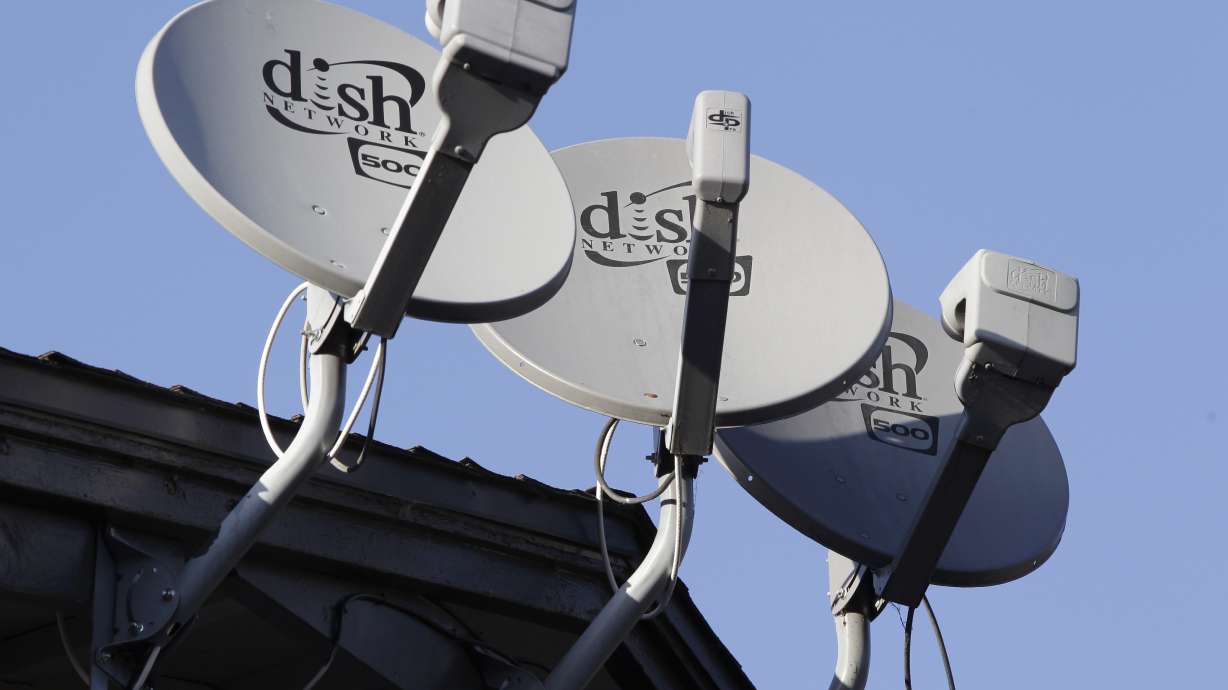Estimated read time: 4-5 minutes
This archived news story is available only for your personal, non-commercial use. Information in the story may be outdated or superseded by additional information. Reading or replaying the story in its archived form does not constitute a republication of the story.
NEW YORK (AP) — U.S. antitrust regulators have cleared T-Mobile's $26.5 billion takeover of rival Sprint, leaving just three major cellphone companies, while creating a smaller competitor in satellite-TV company Dish.
While there are still a few hurdles to be cleared for the deal to close, here's what a combined T-Mobile-Sprint company could mean for you and your cellphone bill:
FOR MOST T-MOBILE AND SPRINT CUSTOMERS
Sprint customers will be eventually transferred to the new T-Mobile, but that transition will take a few years. If you are a T-Mobile customer, you might not see many changes. However, because the goal of the takeover is to roll out a next-generation "5G" network, subscribers of both could ultimately see faster service.
WHAT ABOUT PREPAID CUSTOMERS?
As part of the deal, Dish will get Sprint's prepaid business, including Boost Mobile and Virgin Mobile. Even if its network isn't ready, customers aren't supposed to see service quality drop, as Dish is going to use T-Mobile's network until it can run its own.
HOW STRONG IS DISH?
That's an open question.
Public-interest groups point out that Sprint is an existing company with more than 50 million subscribers. Dish would start from scratch building a network that will cost tens of billions. It gets only 9 million customers from the deal and will have to fight to win more.
As for the network, Dish already owns spectrum, or airwave rights, but hasn't been using it. Friday's deal would give Dish additional airwaves that travel far and work well in rural areas. Dish is supposed to put those to use in its own network, but it has to rely on T-Mobile's network in the meantime. MoffettNathanson analyst Craig Moffett says the set-up suggests Dish won't have an incentive to set "aggressively" low prices.
Dish says it will offer service to 70 percent of the U.S. population by 2023. But while it's billed as 5G, Dish is promising speeds that are only slightly higher than what's typical today.
It may take a while before Dish can challenge the bigger companies in a way that benefits consumers — if it ever does — the way T-Mobile developed a reputation for itself as the "Un-carrier."
AND FOR VERIZON AND AT&T CUSTOMERS?
T-Mobile was instrumental in pushing the more established players to be more consumer friendly, doing away with two-year phone contracts and offering unlimited data plans. T-Mobile has offered goodies for its customers like free or discounted Netflix and free international data. With just three major providers, the worry is that there would be less incentive to add services that consumers like or to compete on price.
T-Mobile has promised not to raise prices for three years, but after that, it's fair game. But T-Mobile CEO John Legere said Friday that the company will continue to be the "Un-carrier" and keep Verizon, AT&T and others on their toes.
SO WILL PRICES GO UP OR DOWN?
Opinion is divided. Generally, fewer competitors mean higher prices, which is part of the reason the Department of Justice required the companies to sell part of its business to Dish to keep the number of major wireless providers at four.
"Americans across the country will likely pay higher prices for worse service in a wireless market dominated by AT&T, Verizon, and T-Mobile," said Barry Lynn, executive director of the Open Markets Institute, a research group that promotes competition. "The problem is especially bad for poor and rural customers."
But others, including T-Mobile of course, say prices won't rise and the deal is good for consumers.
"Private industry has every incentive to give American consumers what they want: faster, better, cheaper wireless service," said Patrick Hedger, research fellow at the Competitive Enterprise Institute, a think tank that favors free markets and limited government intervention.
WILL THIS DEAL ACTUALLY HAPPEN?
A federal judge still must sign off on the approval, as it includes conditions for the new company. And 14 attorneys general are suing to stop the deal.
HOW SOON WOULD T-MOBILE AND SPRINT ROLL OUT 5G?
5G is the next generation of wireless service that has become a politically touchy subject. President Donald Trump has said he wants the U.S. to "win" on 5G, particularly against China. It promises faster speeds and opportunities for new technologies.
Both Sprint and T-Mobile have already launched 5G networks in certain cities. They have said they will be able to do it faster and better now than they could individually. They have promised to cover 97 percent of U.S. in three years and 99 percent in six years. T-Mobile had said that it planned to launch a nationwide network by 2020 itself, but didn't have such specific targets.
Copyright © The Associated Press. All rights reserved. This material may not be published, broadcast, rewritten or redistributed.









